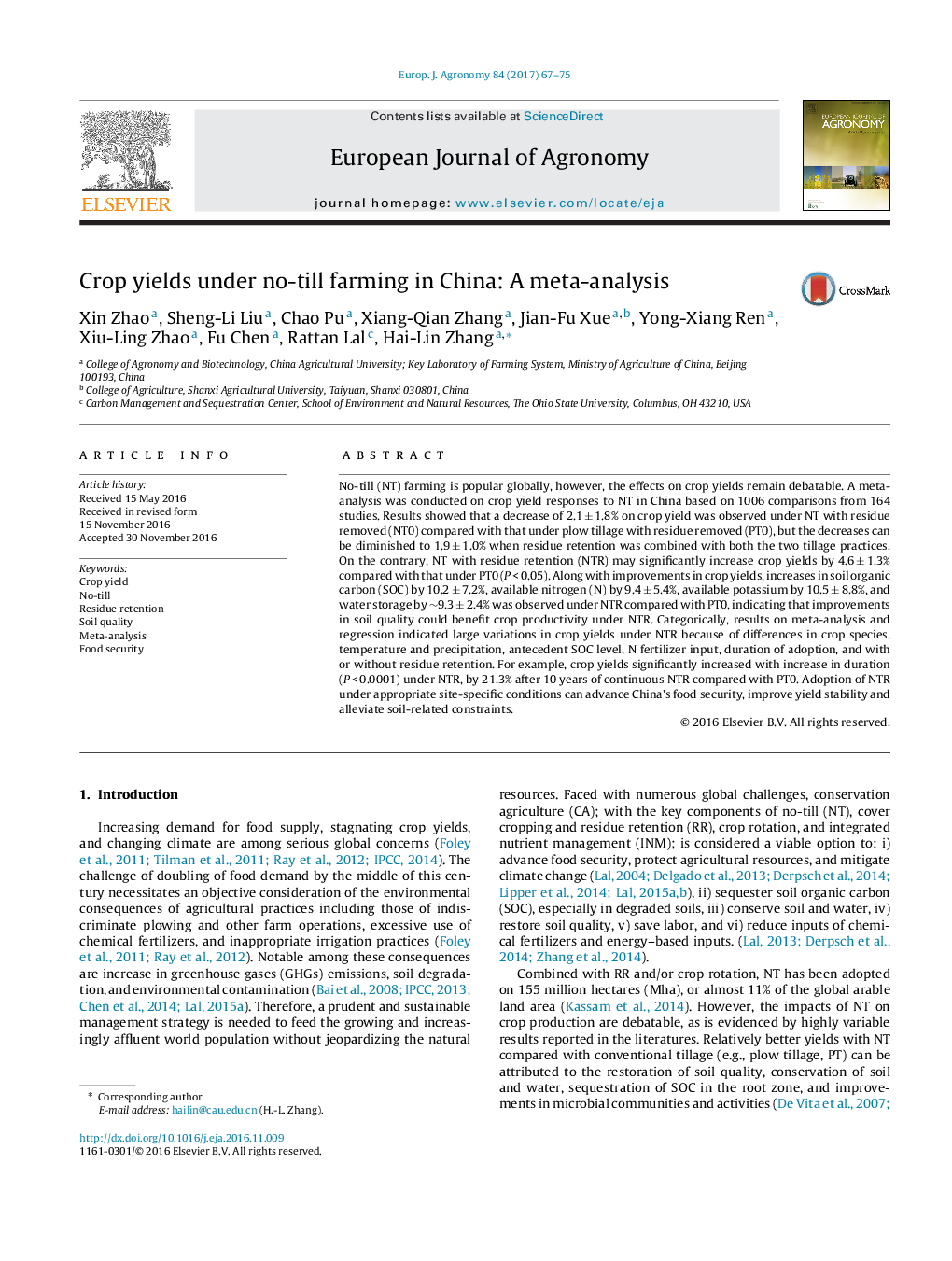| Article ID | Journal | Published Year | Pages | File Type |
|---|---|---|---|---|
| 5761295 | European Journal of Agronomy | 2017 | 9 Pages |
Abstract
No-till (NT) farming is popular globally, however, the effects on crop yields remain debatable. A meta-analysis was conducted on crop yield responses to NT in China based on 1006 comparisons from 164 studies. Results showed that a decrease of 2.1 ± 1.8% on crop yield was observed under NT with residue removed (NT0) compared with that under plow tillage with residue removed (PT0), but the decreases can be diminished to 1.9 ± 1.0% when residue retention was combined with both the two tillage practices. On the contrary, NT with residue retention (NTR) may significantly increase crop yields by 4.6 ± 1.3% compared with that under PT0 (P < 0.05). Along with improvements in crop yields, increases in soil organic carbon (SOC) by 10.2 ± 7.2%, available nitrogen (N) by 9.4 ± 5.4%, available potassium by 10.5 ± 8.8%, and water storage by â¼9.3 ± 2.4% was observed under NTR compared with PT0, indicating that improvements in soil quality could benefit crop productivity under NTR. Categorically, results on meta-analysis and regression indicated large variations in crop yields under NTR because of differences in crop species, temperature and precipitation, antecedent SOC level, N fertilizer input, duration of adoption, and with or without residue retention. For example, crop yields significantly increased with increase in duration (P < 0.0001) under NTR, by 21.3% after 10 years of continuous NTR compared with PT0. Adoption of NTR under appropriate site-specific conditions can advance China's food security, improve yield stability and alleviate soil-related constraints.
Related Topics
Life Sciences
Agricultural and Biological Sciences
Agronomy and Crop Science
Authors
Xin Zhao, Sheng-Li Liu, Chao Pu, Xiang-Qian Zhang, Jian-Fu Xue, Yong-Xiang Ren, Xiu-Ling Zhao, Fu Chen, Rattan Lal, Hai-Lin Zhang,
